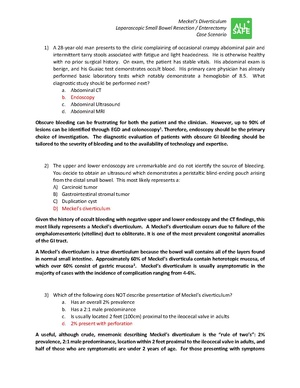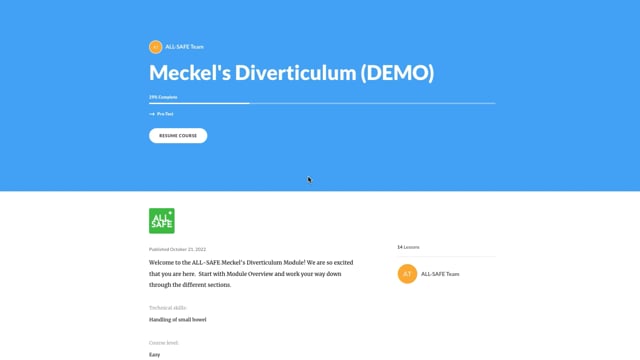Meckel's Procedure
Welcome to the procedure part of the Meckel's diverticulum / bowel resection module. Here the learner will go through a pre-test and interactive case scenario to learn about laparoscopic management of Meckel's diverticulum.
Pre-test[edit | edit source]
Learners will first take a pre-test to assess their baseline knowledge of the topic. This test is available on our interactive platform and gives real-time grading for learners to immediately assess their knowledge coming into the module. It is also copied in appropedia format below. On our platform, answer explanations are not displayed for the pre-test (but are displayed in the post-test).
The answers, with explanations, are available for review in the post-test which is accessible here for download as a pdf.
ALL-SAFE Meckel's Diverticulum Pre & Post Test PDF
Case scenario[edit | edit source]
The psychomotor learning is embedded in the sequence of a full clinical case, allowing the learner to digest pre-, intra-, and operative concepts of ectopic pregnancy.
Learners will go through an interactive case scenario with embedded course material. The case scenario is presented in a question / answer format. As learners progress through the case, they will digest information that is presented to them as they answer case questions. It is highly recommended that the learner be familiar with this content before proceeding to the skill pages.


